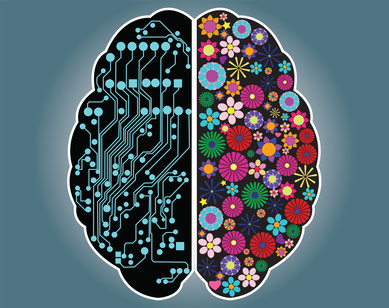Sidebar
Login
Resources
Institute Projects Article Count: 0
The subsites under the "Research Portals" are devoted to some of the ongoing research projects within IBCSR. Use these sites to track specific research project of particular interest to you.
Modeling Religion Project Article Count: 5
The Modeling Relgion Project (MRP), a subproject under the umbrella of IBCSR's Simulation Religion Project, is an ambitious attempt to connect the sciences of modeling and simulation (M&S) with the scientific study of religion (SSR). With generous funding from the John Templeton Foundation, the three years from July 1, 2015 through June 30, 2018 promise an exciting intensification of a new kind of research in the academic study of religion. The first goal of MRP is to produce a simulation development platform that will allow SSR scholars and students to create complex simulations with no programming. The second goal is to produce a series of simulations of the role of religion in key transformations of human civilization, such as the Agricultural Transition (c. 8000 BCE), the Axial age (c. 800-200 BCE), and modernity (c. 1600-2100). The third goal is to explain the importance of M&S to the world of the academic study of religion. This will involve web blogs, outreach efforts, and even a documentary film.
Key personnel: Wesley J. Wildman (PI), Saikou Diallo, F. LeRon Shults, Jose J. Padilla, Ross Gore, Ruben Mancha, Justin E. Lane, Connor P. Wood, Christopher Lynch, Patrick J. McNamara, Jenn Lindsay, Kate Stockly.
Spectrums Project Article Count: 15
 IBCSR's Spectrums Project is an ambitious attempt to apply what is known about ideological spectrums in politics and morality to the field of religious beliefs and practices. The Project's goal is twofold: firstly, to deepen understanding of why human beings adopt a spectrum of religious and theological viewpoints; and secondly, to discover strategies for mitigating the problems associated with religious extremism and polarized religious discourse. IBCSR's main partners in this project are Dr. Catherine Caldwell-Harris in Boston University's Psychology Department and Dr. Ravi Iyer of the University of Southern California. The project's post-doctoral fellow is Dr. Aimee Radom, who recently completed a dissertation on a related topic. This project is funded by Boston University's School of Theology, the Doug & Gay Lane Foundation, the Lakeside Foundation, and the Arthur Vining Davis Foundations.
IBCSR's Spectrums Project is an ambitious attempt to apply what is known about ideological spectrums in politics and morality to the field of religious beliefs and practices. The Project's goal is twofold: firstly, to deepen understanding of why human beings adopt a spectrum of religious and theological viewpoints; and secondly, to discover strategies for mitigating the problems associated with religious extremism and polarized religious discourse. IBCSR's main partners in this project are Dr. Catherine Caldwell-Harris in Boston University's Psychology Department and Dr. Ravi Iyer of the University of Southern California. The project's post-doctoral fellow is Dr. Aimee Radom, who recently completed a dissertation on a related topic. This project is funded by Boston University's School of Theology, the Doug & Gay Lane Foundation, the Lakeside Foundation, and the Arthur Vining Davis Foundations.
Key personnel: Wesley J. Wildman (PI), Catherine Caldwell-Harris, Ravi Iyer, Aimee Radom, Connor P. Wood, Nicholas DiDonato.
Neuroscience and Religious Cognition Project Article Count: 7
 The Neuroscience and Religious Cognition Project proposes to identify the alterations in neural systems in patients with Parkinson’s Disease (PD) that could account for previously observed reductions in religiosity and in fluent access to religious concepts. The project uses advances in functional connectivity magnetic resonance imaging (fcMRI) techniques, new psychophysical cognitive priming techniques, and classical ‘on-off’ levodopa (LD) comparative techniques to identify brain system alterations linked with religious cognition changes in these patients. In addition, two doctoral students and one post-doctoral fellow are being trained in the scientific background and experimental techniques relevant to this project. The post-doc will receive advanced training in fcMRI analyses relevant to ‘religion and brain’ issues while the doctoral students will be integrated into all aspects of hypothesis testing procedures of the project. We believe our work with these patients will identify key sources of their deficits as well as illuminate fundamental issues in the neuroscience of religious beliefs, behaviors, and experiences.
The Neuroscience and Religious Cognition Project proposes to identify the alterations in neural systems in patients with Parkinson’s Disease (PD) that could account for previously observed reductions in religiosity and in fluent access to religious concepts. The project uses advances in functional connectivity magnetic resonance imaging (fcMRI) techniques, new psychophysical cognitive priming techniques, and classical ‘on-off’ levodopa (LD) comparative techniques to identify brain system alterations linked with religious cognition changes in these patients. In addition, two doctoral students and one post-doctoral fellow are being trained in the scientific background and experimental techniques relevant to this project. The post-doc will receive advanced training in fcMRI analyses relevant to ‘religion and brain’ issues while the doctoral students will be integrated into all aspects of hypothesis testing procedures of the project. We believe our work with these patients will identify key sources of their deficits as well as illuminate fundamental issues in the neuroscience of religious beliefs, behaviors, and experiences.
Key personnel: Patrick McNamara (PI), Wesley J. Wildman (Co-PI), Raymon Durso, David Salat, Christopher Halloran, Jonathan Morgan, Yorghos Tripodis, Dustin Clark, Brian Teed, and a host of research assistants.
Quantifying Religious Experience Project Article Count: 12
 IBCSR's Quantifying Religious Experience Project (QRXP) develops methods for measuring the distinctive cognitive and emotional features of religious experiences. The purpose of this project is to furnish a basis for the comparison of religious and spiritual experiences across demographic groups (such as men and women) and across cultures. Such comparisons can be extremely important for an adequate interpretation of religious and spiritual experiences. QRXP is funded by the John Templeton Coundation, Boston University, and IBCSR. A rich de-identified dataset of narratives, phenomenological profiles, and expert ratings is available to researchers who wish to pursue their own analyses.
IBCSR's Quantifying Religious Experience Project (QRXP) develops methods for measuring the distinctive cognitive and emotional features of religious experiences. The purpose of this project is to furnish a basis for the comparison of religious and spiritual experiences across demographic groups (such as men and women) and across cultures. Such comparisons can be extremely important for an adequate interpretation of religious and spiritual experiences. QRXP is funded by the John Templeton Coundation, Boston University, and IBCSR. A rich de-identified dataset of narratives, phenomenological profiles, and expert ratings is available to researchers who wish to pursue their own analyses.
Key personnel: Wesley J. Wildman (PI), Ron Pekala, Nik Zanetti, Ian Cooley.
Simulating Religion Project Article Count: 3
 The Simulating Religion Project (SRP) is a cluster of subprojects aiming to apply modeling and simulation techniques to the scientific study of religion. Modeling and simulation depends on data, so building and finding datasets is vital. There has been little past simulation research in religion. Extant work has posited very simple human minds, simple interactions, simple behaviors, and simple modes of change. This is for good reasons: excessive complexity in a simulation obscures the relevant lines of causality and causes us to lose cognitive control over our own model. But this leaves us with a problem: too much simplicity gives wrong answers, and too much complexity gives unclear and confused ones. SRP integrates multiple theories of religious cognition and produces tools that are capable of testing hypotheses regarding religion’s social and cultural effects. In particular, the Simulating Religion Project will try to answer questions such as, “What are the factors that contribute to civilizational transformation?”, “What role does religion play in social change?”, and “How do evolved cognitive, emotional and social tendencies interact?” Simulation techniques permit a newly persuasive approach to such questions, complementing approaches pursued in other disciplines.
The Simulating Religion Project (SRP) is a cluster of subprojects aiming to apply modeling and simulation techniques to the scientific study of religion. Modeling and simulation depends on data, so building and finding datasets is vital. There has been little past simulation research in religion. Extant work has posited very simple human minds, simple interactions, simple behaviors, and simple modes of change. This is for good reasons: excessive complexity in a simulation obscures the relevant lines of causality and causes us to lose cognitive control over our own model. But this leaves us with a problem: too much simplicity gives wrong answers, and too much complexity gives unclear and confused ones. SRP integrates multiple theories of religious cognition and produces tools that are capable of testing hypotheses regarding religion’s social and cultural effects. In particular, the Simulating Religion Project will try to answer questions such as, “What are the factors that contribute to civilizational transformation?”, “What role does religion play in social change?”, and “How do evolved cognitive, emotional and social tendencies interact?” Simulation techniques permit a newly persuasive approach to such questions, complementing approaches pursued in other disciplines.
SRP subprojects: Modeling Religion Project (MRP, 2015-2018) | Modeling Religion in Norway (MODRN, 2016-2019)
Key personnel: Wesley J. Wildman (PI), Patrick McNamara, Luke Matthews, Rich Sosis, Charles Nunn, F. LeRon Shults, Saikou Diallo, Justin E. Lane, Connor P. Wood, Christopher Lynch, Ross Gore, Jose Padilla, Ruben Mancha, Jenn Lindsay, Kate Stockly
Spirituality and Health Causation Project Article Count: 30
 IBCSR's Spirituality and Health Causation Project aims to move beyond the hundreds of correlational studies identifying the health effects of religious and spiritual practices to identify the causal, biochemical mechanisms that mediate spirituality-health connections. IBCSR's partners in this project are Dr. Katherine Verdolini Abbott and Dr. Nicole Li at the University of Pittsburgh. The Spirituality and Health Causation Project is funded in part by an NIH subcontract through the University of Pittsburgh and by Boston University.
IBCSR's Spirituality and Health Causation Project aims to move beyond the hundreds of correlational studies identifying the health effects of religious and spiritual practices to identify the causal, biochemical mechanisms that mediate spirituality-health connections. IBCSR's partners in this project are Dr. Katherine Verdolini Abbott and Dr. Nicole Li at the University of Pittsburgh. The Spirituality and Health Causation Project is funded in part by an NIH subcontract through the University of Pittsburgh and by Boston University.
Key personnel: Wesley J. Wildman (PI), Katherine Verdolini Abbott, Nicole Li, Joel Daniels.
Economics, Science and Religion Project Article Count: 1
 The Economics, Science and Religion Project aims to develop an anthropologically sophisticated theoretical account of the relationship between religion and science in the Euro-American, post-Enlightenment context in conversation with historical and philosophical analyses of the academic study of economics. To this end, the project explores contemporary debates among historians and philosophers of economics over whether the construction of economic theories is most properly regarded as a scientific or a religious enterprise. The aim of the project is not to resolve these debates but to leverage them for the sake of constructing a theoretical account of the relationship between science and religion that is attuned to the intertwined religious and scientific dimensions of human inquiry in an era when economic theorizing plays a large role in shaping human interactions, all the way from local patterns of social organization to the global dynamics of national and international politics.
The Economics, Science and Religion Project aims to develop an anthropologically sophisticated theoretical account of the relationship between religion and science in the Euro-American, post-Enlightenment context in conversation with historical and philosophical analyses of the academic study of economics. To this end, the project explores contemporary debates among historians and philosophers of economics over whether the construction of economic theories is most properly regarded as a scientific or a religious enterprise. The aim of the project is not to resolve these debates but to leverage them for the sake of constructing a theoretical account of the relationship between science and religion that is attuned to the intertwined religious and scientific dimensions of human inquiry in an era when economic theorizing plays a large role in shaping human interactions, all the way from local patterns of social organization to the global dynamics of national and international politics.
Key personnel: Kirk Wegter-McNelly.
Cognitive Style and Religious Attitudes Project Article Count: 1
 The Cognitive Style and Religious Attitudes Project is a collaboration between two doctoral students at Boston University, Jonathan Morgan and Connor Wood, as well as Dr. Ravi Iyer of the University of Southern California and doctoral student Thomas Talhelm of the University of Virginia. The objective of the project is to test a group of related hypotheses that make predictions about cognitive style, religious attitudes, and the local-cosmopolitan axis of psychological orientation. The team hopes that their research data, which will be gathered through online surveys at the website ExploringMyReligion.org, will help shed light on how social, cultural, cognitive, and personality factors influence – and are influenced by – religious belief. The resulting publications will contribute to conversations in the scientific study of religion, political psychology, moral psychology, political science, and related fields.
The Cognitive Style and Religious Attitudes Project is a collaboration between two doctoral students at Boston University, Jonathan Morgan and Connor Wood, as well as Dr. Ravi Iyer of the University of Southern California and doctoral student Thomas Talhelm of the University of Virginia. The objective of the project is to test a group of related hypotheses that make predictions about cognitive style, religious attitudes, and the local-cosmopolitan axis of psychological orientation. The team hopes that their research data, which will be gathered through online surveys at the website ExploringMyReligion.org, will help shed light on how social, cultural, cognitive, and personality factors influence – and are influenced by – religious belief. The resulting publications will contribute to conversations in the scientific study of religion, political psychology, moral psychology, political science, and related fields.
Key personnel: Jonathan Morgan, Connor P. Wood, Ravi Iyer, Thomas Talhelm.
Sex Differences and Religion Project Article Count: 6
 The biological evolution of sex in our planetary ecosystem is a complex story covering millions of species and billions of years. The human species further complicates this story with the bio-cultural evolution of sex and gender in complex social niches. Religion and spirituality have played important roles in this process, both influencing and being influenced by sex and gender differences. This project employs perspectives from biological and cultural evolution, developmental biology, anthropology, sociology, psychology, social construction, cognitive neuroscience, neuroimaging, and ethics to understand the intricate multi-directional influences among sex, gender, religion, and spirituality. The Sex Differences and Religion Project has several components. (1) An examination of sex-based differences in religious experiences, using surveys and neuroimaging. (2) The generation of two comprehensive annotated bibliographies, one containing resources relevant to the biology of sex differences, including the genetic and developmental basis for sexual dimorphism and intersex morphology, and the other containing resources relevant to the links among sex, gender, religion, and spirituality. (3) The generation of a cross-cultural dataset supporting phylogenetic analysis of the cultural evolution of religion. (4) A bio-cultural-social-ethical analysis of the controversies surrounding sex differences, sexual attraction, sexual behavior, sexual norms, intersex, and the social construction of gender, particularly as these complex issues influence and are influenced by religion and spirituality. The Sex Differences and Religion Project is led by IBCSR Directors Patrick McNamara and Wesley Wildman with the support of Boston University PhD student and IBCSR Doctoral Fellow Kate Stockly-Meyerdirk.
The biological evolution of sex in our planetary ecosystem is a complex story covering millions of species and billions of years. The human species further complicates this story with the bio-cultural evolution of sex and gender in complex social niches. Religion and spirituality have played important roles in this process, both influencing and being influenced by sex and gender differences. This project employs perspectives from biological and cultural evolution, developmental biology, anthropology, sociology, psychology, social construction, cognitive neuroscience, neuroimaging, and ethics to understand the intricate multi-directional influences among sex, gender, religion, and spirituality. The Sex Differences and Religion Project has several components. (1) An examination of sex-based differences in religious experiences, using surveys and neuroimaging. (2) The generation of two comprehensive annotated bibliographies, one containing resources relevant to the biology of sex differences, including the genetic and developmental basis for sexual dimorphism and intersex morphology, and the other containing resources relevant to the links among sex, gender, religion, and spirituality. (3) The generation of a cross-cultural dataset supporting phylogenetic analysis of the cultural evolution of religion. (4) A bio-cultural-social-ethical analysis of the controversies surrounding sex differences, sexual attraction, sexual behavior, sexual norms, intersex, and the social construction of gender, particularly as these complex issues influence and are influenced by religion and spirituality. The Sex Differences and Religion Project is led by IBCSR Directors Patrick McNamara and Wesley Wildman with the support of Boston University PhD student and IBCSR Doctoral Fellow Kate Stockly-Meyerdirk.
Key personnel: Wesley J. Wildman, Patrick McNamara, Luke Matthews, kate Stockly, Stephanie Arel, Megan DeFranza.
Comparative Cultural Systems Project Article Count: 1
The Comparative Cultural Systems Project (CCSP) sets to devise methods for the interpretation of religious and cultural traditions from a complex adaptive systems approach (CAS). The CCSP focuses on rare phases of restructuration in which cultures adapt to new environmental conditions. Such phase-transitions provide us with the opportunity to study markers of change and growth by highlighting the contrast between periods of stability (homeostasis) and periods of acute crisis and cultural morphogenesis. This methodology sets to underscore the role of different informational architectures as distinct strategies for the construction of culture.
Key Personnel: Yair Lior, Wesley J. Wildman, Justin E. Lane.
Institute Activities Article Count: 2
Past Activities Article Count: 3
These are IBCSR projects that have been completed.
Activities Article Count: 7
These are some of the IBCSR projects currently underway.
Publications Article Count: 6
IBCSR-related publication lists for Institute researchers.
ExploringMyReligion Article Count: 1
ScienceOnReligion Article Count: 1
About the Institute Article Count: 11
Institute Researchers Article Count: 7
Media Room Article Count: 2
 Resources for Journalists
Resources for Journalists
The media room provides information for journalists who write on, or are interested in, this field of research and in the Institute's activities. It includes news releases, references to the Institute in other media sources, and contact information for media inquiries. The media room is still under construction; media kits and downloadable graphics will follow soon.
How Does Journalism Fit with the Institute's Mission?
Far from being an academic exercise in navel-gazing, we believe that the rigorous scientific study of religion is a vital exercise for those who want to address the most serious challenges of our time. Religion is fundamental to human culture, and many of the most formidable controversies we currently face have tacit or overt religious overtones. To understand these dilemmas, we must understand religion.
And as anyone who takes the subject of religion seriously knows, it's not all negative, either. Far from it – religion also serves as a source of profound meaning and direction in the lives of billions (literally!). We think that understanding this search for meaning is an equally important goal, because it's one of the most important – and worthy – motivators of human action and decisions.
Journalists help translate the most important research into language that's accessible to the interested public. The Institute and its website serve to produce and collect the most cutting-edge research on religion, science, and culture, a valuable resource for journalists who specialize in the sciences, religious topics, and cultural issues.
Permissions and Citations
Clip art: The photographs and images that accompany our articles are licensed for use at this website only. When citing or referring to a news item from ScienceOnReligion.org, please do not include any images from the article. Thank you.
Use of news resources: When writing on research findings produced by the Institute, please cite the Institution for the Biocultural Study of Religion in Needham, Massachusetts. If reporting on findings produced by other researchers but which you learned about through the Institute's website, please cite the original authors of the paper(s) in question. Where appropriate, we also request acknowledgement of the Institute for its role in collecting and disseminating the research.
Contact
For inquiries, please contact Connor Wood at This email address is being protected from spambots. You need JavaScript enabled to view it..
News Article Count: 6
Videos Article Count: 13
Numbers, statistics, obscure theories: research can be hard to communicate to the public. Fortunately, there are some great tools out there for telling accessible stories about cutting-edge research to laypeople and those with different areas of expertise. Documentary videos, in particular, can help break down barriers and communicate complex ideas better than almost anything else (something Carl Sagan knew a thing or two about). That's why IBCSR hired religion scholar, musician, and documentarian Jenn Lindsay to create a series of short, eye-catching videos on IBCSR and its projects. The videos capture a fascinating array of affiliated scholars, interviews, and real-world windows into research at the boundary of biology and culture.
Resources Article Count: 1
From the list below choose one of our FAQs topics, then select an FAQ to read. If you have a question which is not in this section, please contact us.
Religion, Brain, and Behavior Journal Article Count: 4
Information about the journal Religion, Brain, and Behavior, published by Taylor & Francis, beginning in February 2011.
IBCSR Research Review Article Count: 57
If you are a member, please log in to review past issues of IBCSR Research Review.
IBCSR members have access to the entire history of IBCSR Research Review issues as well as a searchable database of publications in the scientific study of religion. The database is a one-stop solution to finding what has been published in the biocultural study of religion and in spirituality and health research, with no extraneous results to sift through on your way to locating the information you seek. The IBCSR Research Review Database contains all entries from all issues of the IBCSR Research Review as well as articles from previous years back to the middle of the nineteenth century, and is expanding all the time. IBCSR members enjoy other benefits, too. Join IBCSR today using the link on this page and on the IBCSR home page.
Click here to review a sample issue of IBCSR Research Review.
Professional Opportunities Article Count: 16
Announcements for fellowships, grants, educational programs, and job postings related to the biocultural study of religion are posted on this page. Note that, as a scientific research institution, IBCSR does not support one denomination, religion, or philosophical school above others. However, some of the organizations listed below may be affiliated with specific religious denominations, and may therefore speak for partisan or exclusive interests. IBCSR thus does not necessarily endorse the opportunities listed here, nor the academic or religious affiliations of the organizations involved.
Bibliographies
 The Spirituality, Medicine & Health Bibliography uses a rich categorization scheme and annotations. Free for everyone.
The Spirituality, Medicine & Health Bibliography uses a rich categorization scheme and annotations. Free for everyone.
Membership
 Membership benefits include a discounted journal subscription and online journal access. Join IBCSR today!
Membership benefits include a discounted journal subscription and online journal access. Join IBCSR today!